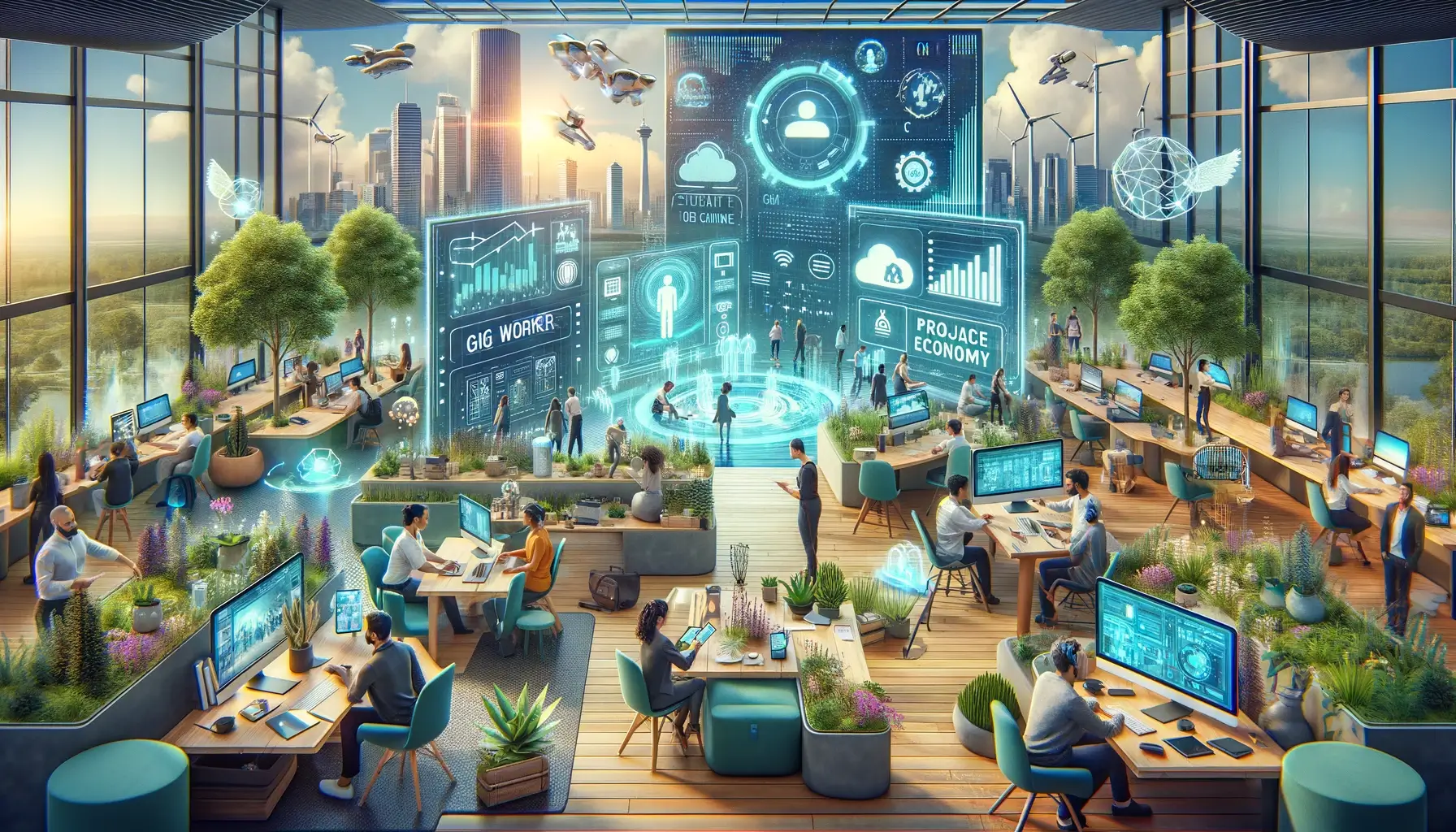1) Dedicated Learning Day:
- Allocating one day per week exclusively for learning, as you suggested, is crucial. This could involve reading books, attending online courses or webinars, and engaging in hands-on projects or workshops. The focus should be on both professional growth and personal interests, encouraging lifelong learning and adaptability to new skills and concepts. People can spend this time learning, and then share what they learnt.
- A dedicated teacher, and mentor for each person on the team.
2) The Importance of Disconnecting
- Implementing a day of disconnect from electronics helps in reducing digital fatigue, enhancing mental health, and promoting mindfulness. During this time, individuals can engage in non-digital hobbies, nature walks, meditation, or physical exercises that contribute to overall well-being.
3) The Importance of Communities
- As you mentioned, building and engaging with communities, both online and offline, can combat isolation and foster a sense of belonging and support. Participating in mastermind groups, attending community meetups, or organizing and joining trips with community members can enhance social connections and provide networking opportunities.
- Increased emphasis on community-driven projects, where professionals come together to tackle social, environmental, or technological challenges. These initiatives could offer opportunities for meaningful work, skill development, and networking, driven by shared values and goals.
4) Employee Ownership & Autonomy
Employees may not even be called employees. More like: “Talent” or “Owners”.
- Employee ownership and enhanced benefits within the context of the Fourth Industrial Revolution could play pivotal roles in shaping a more equitable, motivated, and resilient workforce. As companies navigate the complexities of rapid technological changes, shifting towards models that offer employees a stake in the business and a comprehensive benefits package can foster a culture of loyalty, innovation, and shared success.
5) Employees Are Now Developing Personal Brands
- As individual workers increasingly market their skills directly to businesses and projects, personal branding and a strong digital presence will become more important. Professionals will need to effectively showcase their skills, experiences, and project outcomes across digital platforms to attract opportunities.
6) Collaborative Co-working Spaces
- The expansion of collaborative and co-working spaces designed to support project-based work, offering not just physical office resources but also opportunities for networking, community engagement, and interdisciplinary collaboration.
7) Health & Wellness
- Organizations and platforms offering holistic health and wellness programs that address the physical, mental, and emotional well-being of individuals in the project economy. These could include access to mental health support, physical fitness programs, and resources for managing the unique stresses of project-based work.
8) Flexible Work Hours and Remote Work:
- Adopting flexible work hours and allowing for remote work where possible can contribute to a better work-life balance, accommodating personal life responsibilities and preferences. This flexibility can increase productivity and job satisfaction. People can think on how
9) Fluid-Project Based Job Roles
- Moving away from traditional, static job roles to more dynamic, project-based teams that allow employees to contribute based on their skills, interests, and career aspirations. This flexibility can lead to more innovative outcomes and a more engaged workforce
- Leveraging technology to build diverse, global teams that work remotely yet effectively. This expands the talent pool, fosters cultural exchange, and enhances creativity and problem-solving by bringing together diverse perspectives.
- A new way to advertise skills, and join projects more flexibly on a project basis. Think about the gig economy, to the project economy. The Project Economy.
10) Content Creation and Reflection:
- A day or dedicated time slots throughout the week for writing, content creation, and reflection can enhance learning retention and creativity. This process not only solidifies new knowledge but also allows individuals to share insights with broader communities, fostering a culture of knowledge exchange and collaboration.
11) New Regulations
- New regulatory and policy frameworks that address the rights, responsibilities, and protections for workers in the project economy. This could include innovative approaches to benefits, income stability, and career security for those engaged in non-traditional work arrangements.
Challenges
- Adapting to Rapid Technological Changes: Keeping skills relevant in the face of accelerating technological advancements.
- Mental Health and Well-being: Ensuring the mental health and well-being of employees in increasingly digital and remote work environments.
- Work-Life Balance: Managing the blurring lines between work and life, especially with the rise of remote work.
- Data Privacy and Security: Protecting sensitive information in an era of widespread data analytics and digital workspaces.
- Inequality and Access: Addressing the digital divide and ensuring equal access to opportunities in the gig and project economy.
- Sustainability: Integrating sustainable practices into business models amid growing environmental concerns.
Further Reading
- “The Future of Work: Robots, AI, and Automation” by Darrell M. West: Explores how technology is transforming the workplace and what it means for workers and industries.
- “Remote: Office Not Required” by Jason Fried and David Heinemeier Hansson: Offers insights into the growing trend of remote work and its implications for businesses and employees.
- “The Second Machine Age: Work, Progress, and Prosperity in a Time of Brilliant Technologies” by Erik Brynjolfsson and Andrew McAfee: Discusses how the digital revolution is reshaping the economy, work, and our lives.
- “Drive: The Surprising Truth About What Motivates Us” by Daniel H. Pink: Looks at the science of motivation in the workplace and how it’s changing.
- “Doughnut Economics: Seven Ways to Think Like a 21st-Century Economist” by Kate Raworth: Offers a new economic model that balances human needs with planetary limits, relevant for businesses aiming for sustainability.
- “Lean Out: The Truth About Women, Power, and the Workplace” by Marissa Orr: Challenges current narratives about women in the workplace and offers a new perspective on leadership and success.
- “The Gig Economy: The Complete Guide to Getting Better Work, Taking More Time Off, and Financing the Life You Want!” by Diane Mulcahy: Provides strategies for navigating and thriving in the gig economy.
